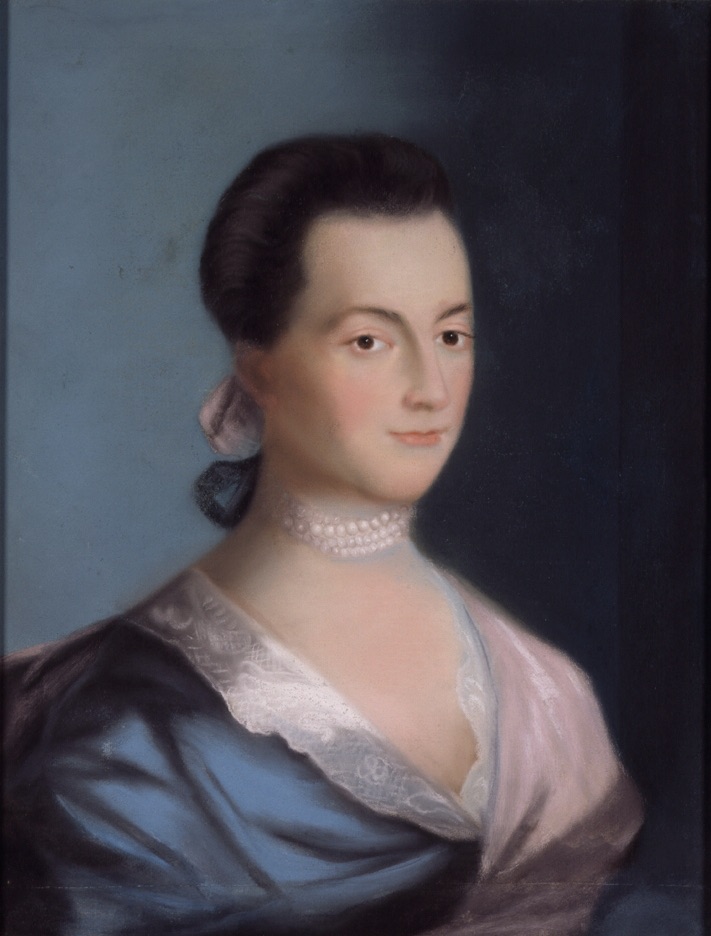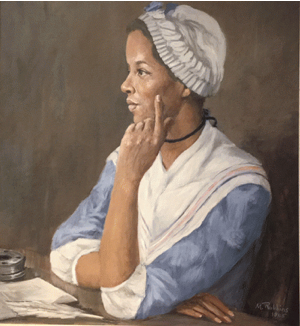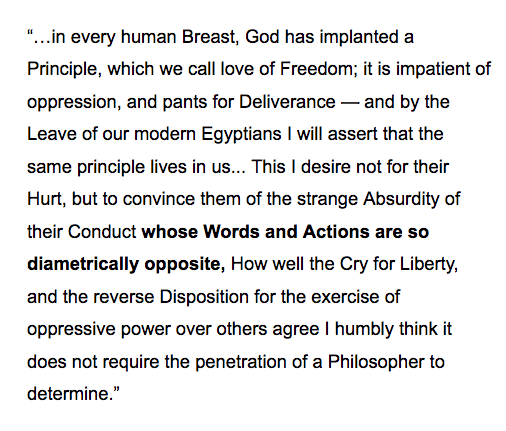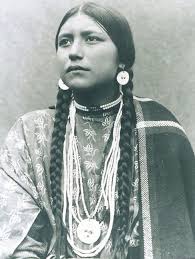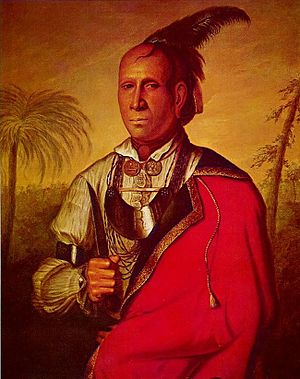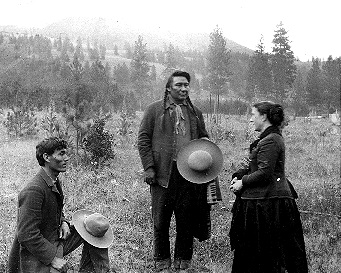The Continental Congress had the Declaration of Independence read aloud in public squares to announce their decision to “institute [a] new Government.”
To many listening *at the time* what would have jumped out at them was not its flowery words, but rather who was EXCLUDED.

To many listening *at the time* what would have jumped out at them was not its flowery words, but rather who was EXCLUDED.

White women, enslaved women & native women were left out entirely as if they didn’t exist.
Abigail Adams, wife of John Adams & future first lady wrote her husband March 1776:
“I long to hear that you have declared an independency — & ... I desire you would Remember the Ladies"
Abigail Adams, wife of John Adams & future first lady wrote her husband March 1776:
“I long to hear that you have declared an independency — & ... I desire you would Remember the Ladies"
Abigail Adams was in Boston when the Declaration of Independence was read publicly & was irate when she heard it did not “Remember the Ladies” nor did it include the denunciation of slavery.
Abigail was an outspoken abolitionist & these omissions hit her as a double-betrayal.
Abigail was an outspoken abolitionist & these omissions hit her as a double-betrayal.
Abigail Adams was not the only woman at the time who tried to bend the ear of the so-called "Founding Fathers."
Phillis Wheatley, who published her first volume of poetry in 1773 while still enslaved, became a literary celebrity in the Colonies.
Phillis Wheatley, who published her first volume of poetry in 1773 while still enslaved, became a literary celebrity in the Colonies.
Just 4 months BEFORE the Declaration of Independence was ratified, in March of 1776, Phillis Wheatley personally visited General George Washington at his headquarters.
Her talents provided undeniable evidence to these men that African Americans were equally capable & creative.
Her talents provided undeniable evidence to these men that African Americans were equally capable & creative.
Phillis Wheatley was patriotic, but outspoken in her belief that slavery was what prevented the colonists from true heroism.
In a letter published on March 11, 1774, she she harshly condemned the hypocrisy of slavers or “modern Egyptians."
She did not mince words.
In a letter published on March 11, 1774, she she harshly condemned the hypocrisy of slavers or “modern Egyptians."
She did not mince words.
The Founding Fathers’ proximity to native cultures allowed them to see first-hand the key role women played. Since indigenous women often controlled the land, they had to deal directly w them.
Nancy Ward was a Cherokee leader who held the powerful office of “Beloved Woman."
Nancy Ward was a Cherokee leader who held the powerful office of “Beloved Woman."
In 1781 Nancy Ward, or Nanye’hi, came before a crowd of white male U.S. treaty officials to defend her land. She let them know that she regarded them as below her in authority, “we are your Mothers; you are our sons. Our cry [is] all for Peace... Let your Women hear our Words.”
Cherokee women held such powerful roles that they thought a nation not honoring its women must be dangerous.
“Where are your women?” Cherokee leader Attakullakulla asked w incredulity when w delegation arrived at to negotiate w English colonists in 1759 & there were only men.
“Where are your women?” Cherokee leader Attakullakulla asked w incredulity when w delegation arrived at to negotiate w English colonists in 1759 & there were only men.

 Read on Twitter
Read on Twitter![The Continental Congress had the Declaration of Independence read aloud in public squares to announce their decision to “institute [a] new Government.”To many listening *at the time* what would have jumped out at them was not its flowery words, but rather who was EXCLUDED. The Continental Congress had the Declaration of Independence read aloud in public squares to announce their decision to “institute [a] new Government.”To many listening *at the time* what would have jumped out at them was not its flowery words, but rather who was EXCLUDED.](https://pbs.twimg.com/media/EcHHsfuWkAEmgCF.jpg)

